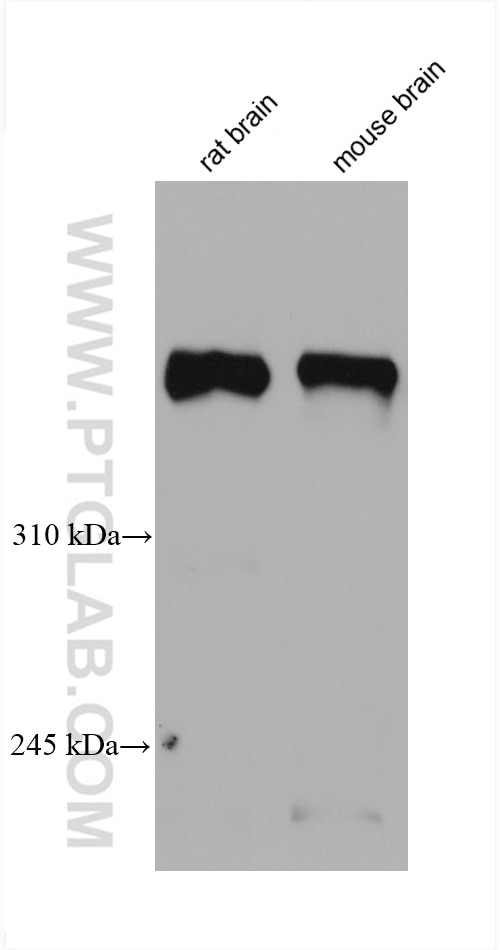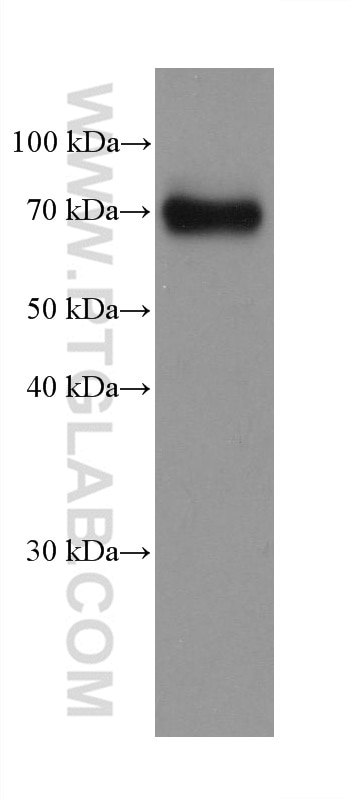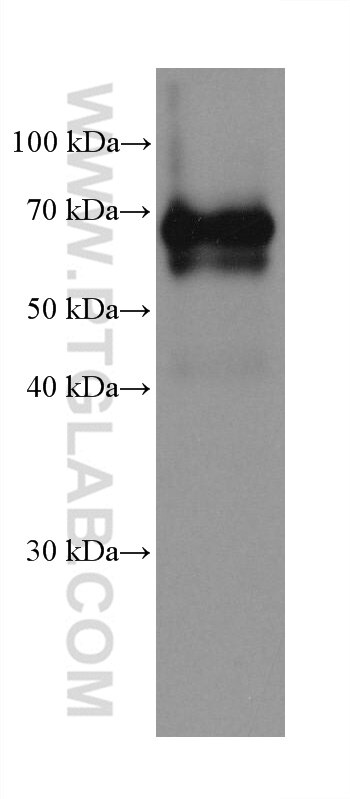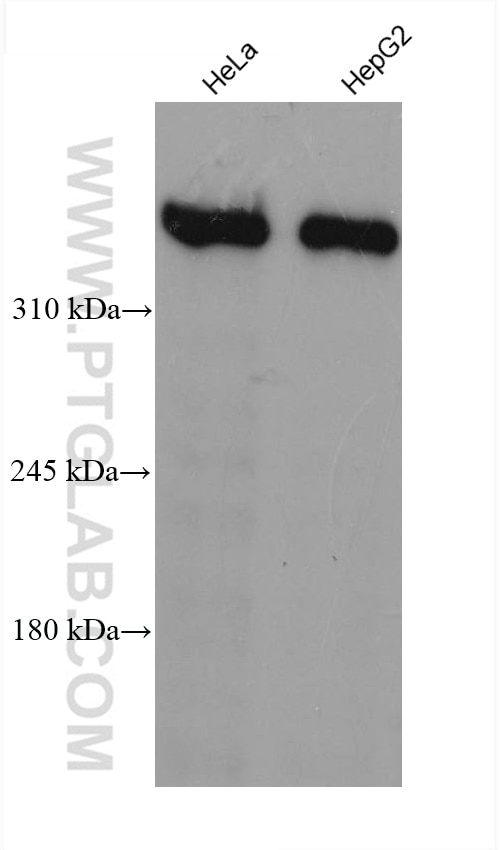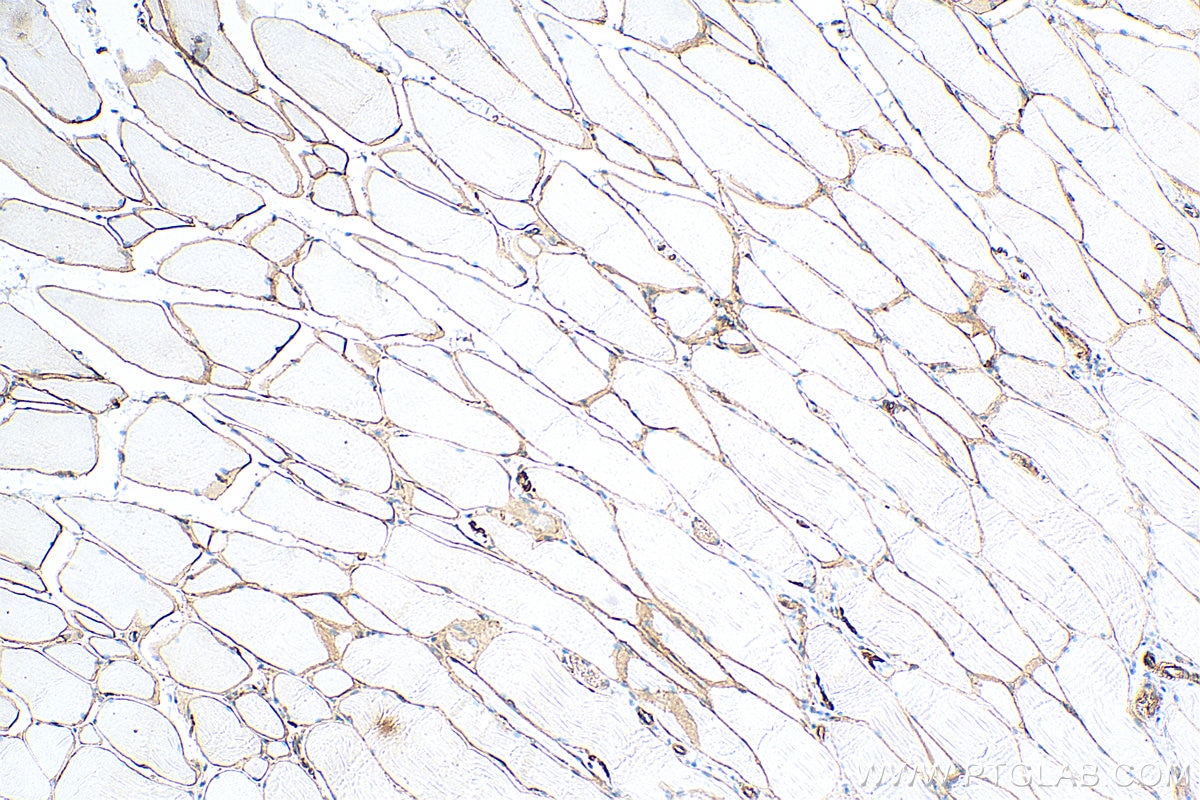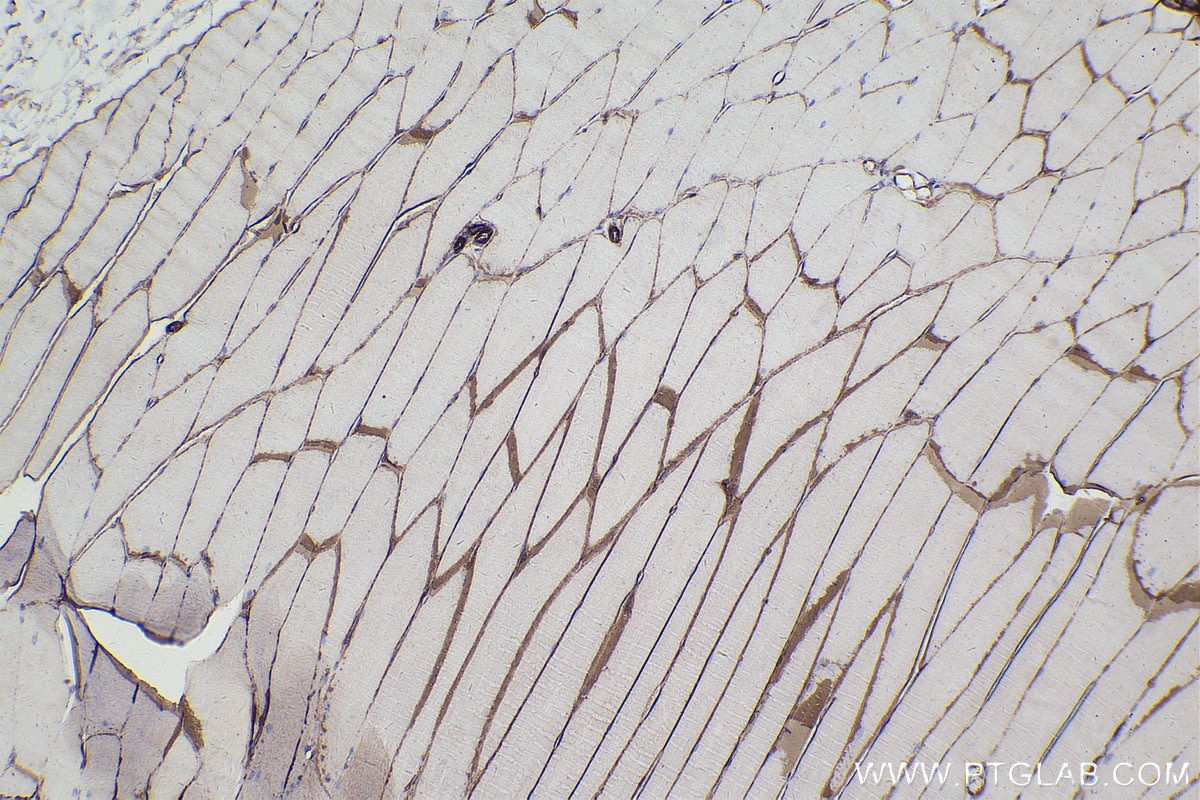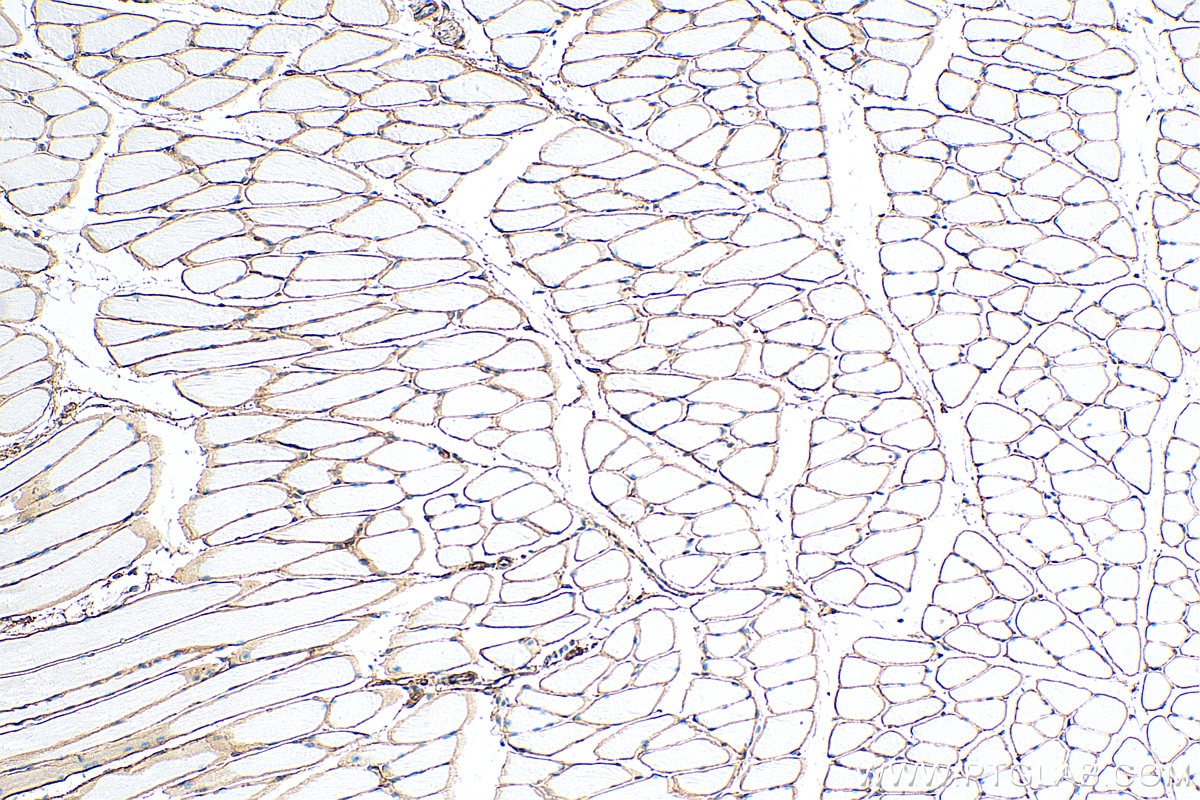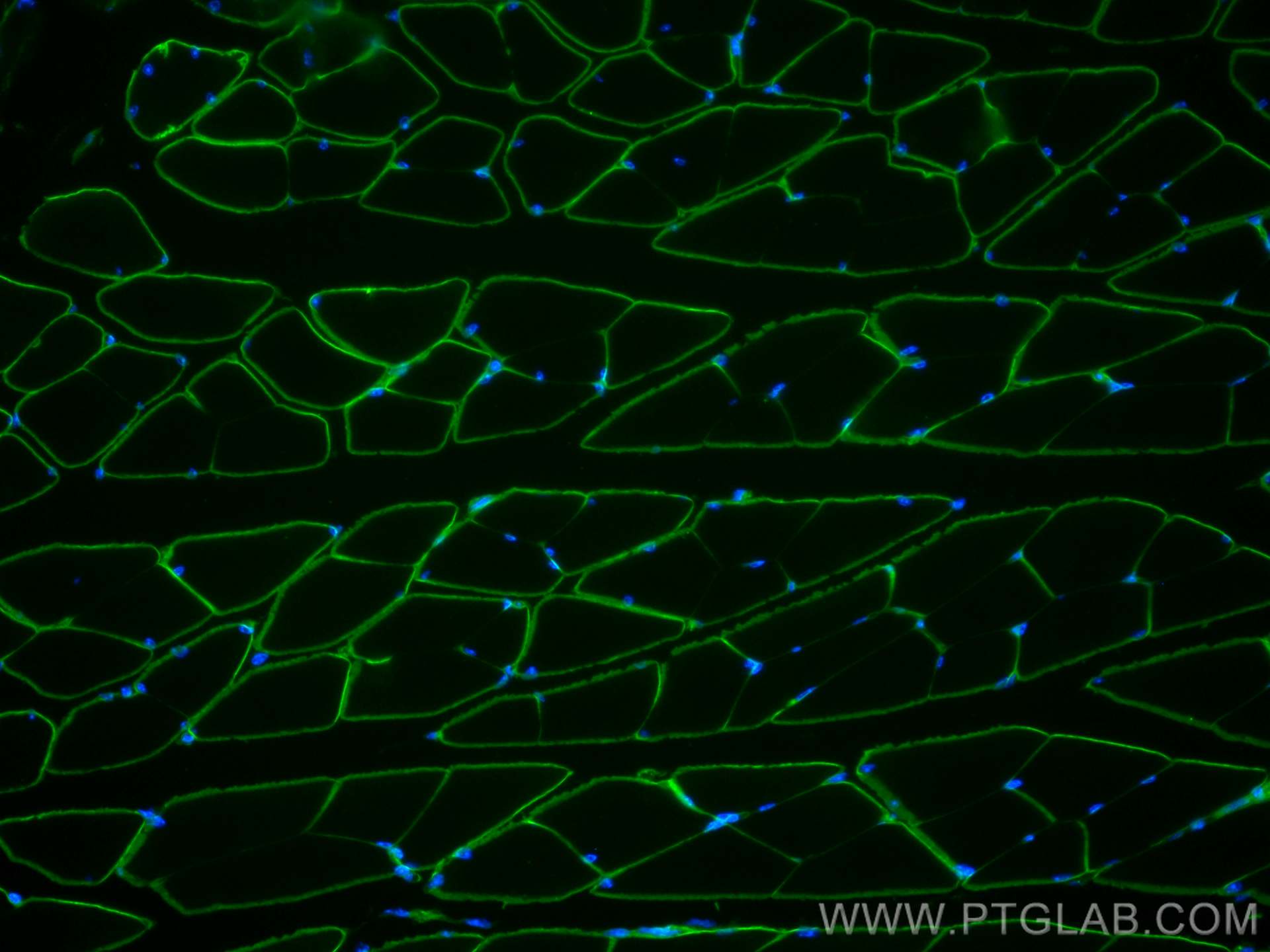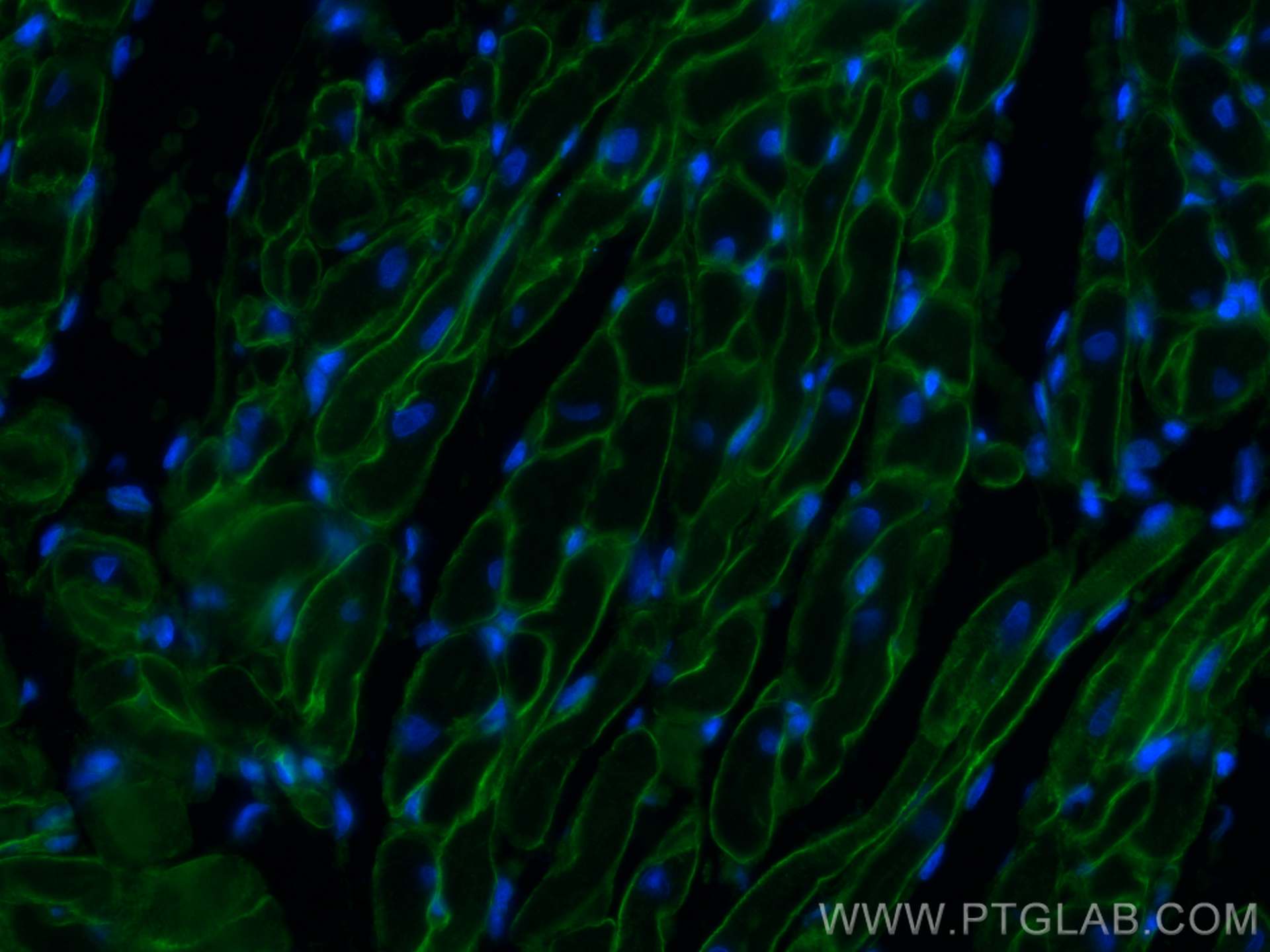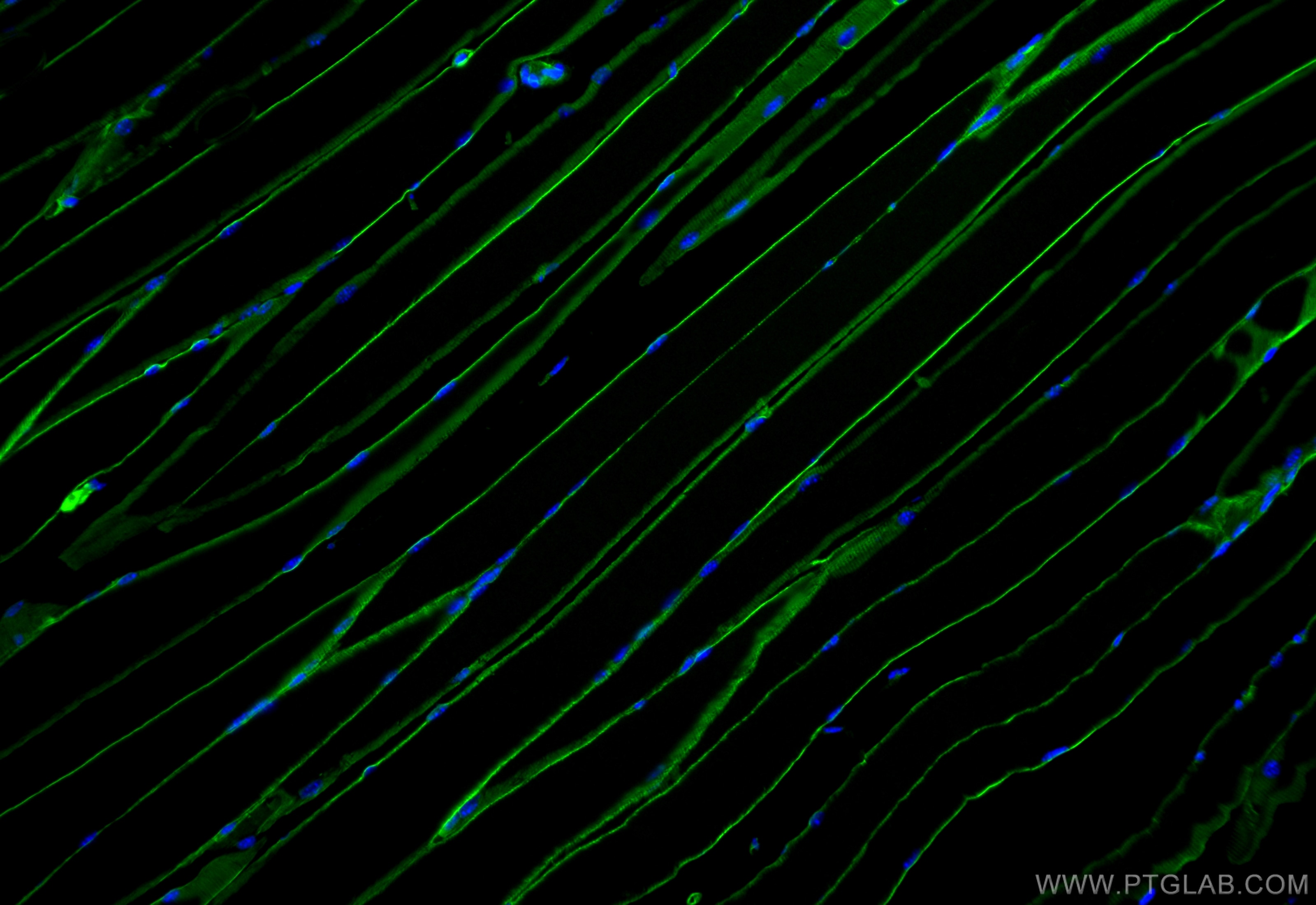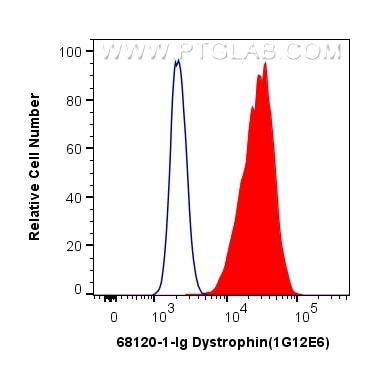Dystrophin Monoklonaler Antikörper
Dystrophin Monoklonal Antikörper für WB, IHC, IF-P, FC (Intra), Indirect ELISA
Wirt / Isotyp
Maus / IgG2a
Getestete Reaktivität
human, Maus, Ratte
Anwendung
WB, IHC, IF-P, FC (Intra), Indirect ELISA
Konjugation
Unkonjugiert
CloneNo.
1G12E6
Kat-Nr. : 68120-1-PBS
Synonyme
Geprüfte Anwendungen
Produktinformation
68120-1-PBS bindet in WB, IHC, IF-P, FC (Intra), Indirect ELISA Dystrophin und zeigt Reaktivität mit human, Maus, Ratten
| Getestete Reaktivität | human, Maus, Ratte |
| Wirt / Isotyp | Maus / IgG2a |
| Klonalität | Monoklonal |
| Typ | Antikörper |
| Immunogen | Dystrophin fusion protein Ag4392 |
| Vollständiger Name | dystrophin |
| Berechnetes Molekulargewicht | 3685 aa, 427 kDa |
| Beobachtetes Molekulargewicht | 70 kDa, 430 kDa |
| GenBank-Zugangsnummer | BC028720 |
| Gene symbol | Dystrophin |
| Gene ID (NCBI) | 1756 |
| Konjugation | Unkonjugiert |
| Form | Liquid |
| Reinigungsmethode | Protein-A-Reinigung |
| Lagerungspuffer | PBS only |
| Lagerungsbedingungen | Store at -80°C. 20ul Größen enthalten 0,1% BSA. |
Hintergrundinformationen
Dystrophin (DMD or BMD) is a large muscle protein whose mutations cause Duchenne muscular dystrophy (DMD) and Becker muscular dystrophy (BMD), the childhood neuromuscular disorders that result in progressive muscle weakness, respiratory difficulties and cardiovascular dysfunction. Dystrophin is a crucial component of the dystrophin-glycoprotein complex which is essential for muscle membrane integrity and stability. Dystrophin is located on the cytoplasmic face of the sarcolemma and connects the cytoskeletal network to the sarcolemma and extracellular matrix. Multiple isoforms of dystrophin exist due to the alternative splicing, with a wide range of MW (69-72, 110-143, 271, 426 kDa). Most tissues contain transcripts of several isoforms.
